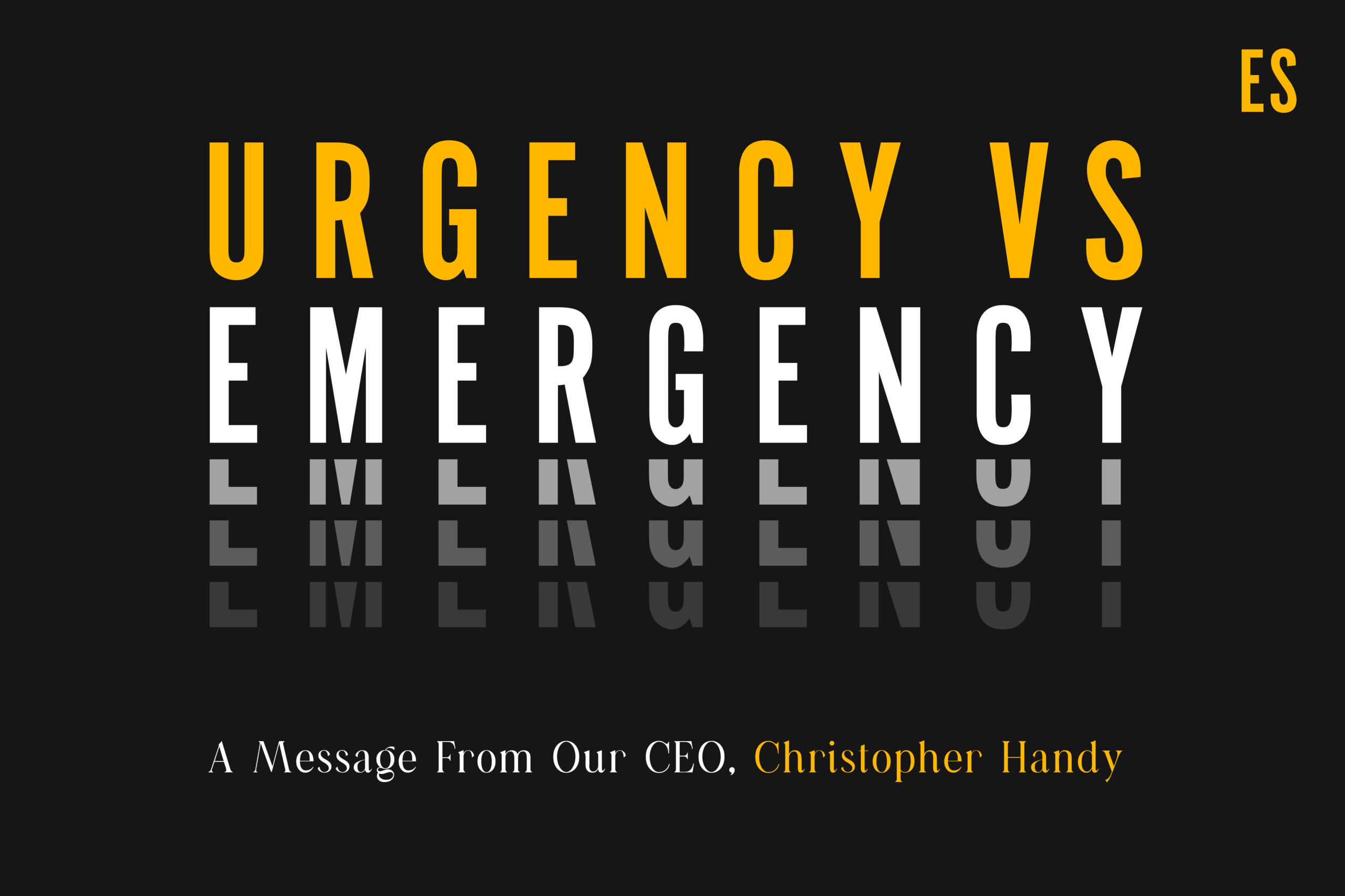“In our rollout of the “8 Steps for Brands Seeking A Breakthrough” we talk about Step 1: Identify the Urgency. A question I sometimes get from clients, potential clients and new agency staff takes some form of, “Why does it have to be an emergency situation for Engine Shop to work with a client? We don’t always have an emergency, we just need an agency. Are you crisis management?” I respond this way:
Urgency and emergency are not the same. Urgency connotes intent, direction and singular focus on getting from current state to desired state. Greatness, success or any type of improvement, whether in business, sports, relationships or self-actualization, seldom occur without the discipline derived from urgency. Clarity lies in the root word. I urge you to be urgent in improving the areas of your life you want to be better.
In contrast, emergencies happen when you find yourself in an undesired state of chaos not planned, not foreseen, brought about by forces beyond your control and with a timeline that disrupts everything else you planned to do. These are scenarios from which we simply and immediately need to emerge. Where we are going becomes way less intentional or strategic. We just need to change our current state to some other state as quickly as we can.
Healthcare illustrates the point. Primary Care. Urgent Care. Emergency Room. Client brand managers are Primary Care – responsible for the proactive, ongoing wellness of the brand. Agencies (marketing specialists) provide both Urgent Care, expertise for the brand when the brand identifies something it wants to be better, and Emergency Room care, expertise for the brand managers when forces beyond their control put them in chaotic situations. All three work together, and Engine Shop can do either of the latter two. But people rarely seem immediately well coming out of the emergency room. They are better than when they went in, for sure, but many emergency room visits result in casts, crutches, stitches, hospital stays, rehab, missed work, and other longer-term, remedial impacts; and, usually, emergencies also tend to be more financially expensive.
We push clients to identify the urgency. It makes the work and the outcomes better, and it tends to reduce the amount of emergencies. That might be a formula for life, too.”

From Our CEO: Urgency vs. Emergency
Posted by Peter Lampard
May 29, 2024
Tags:

